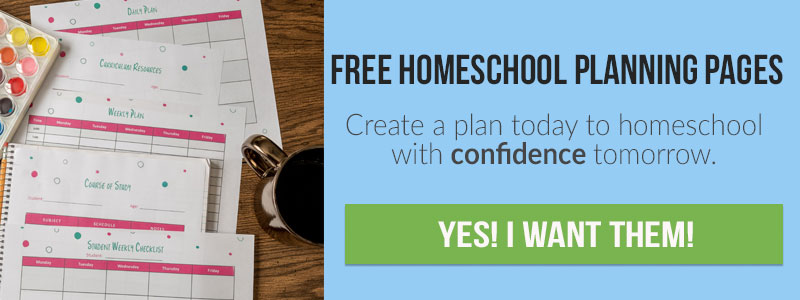
The search results taunt me.
“Creative homeschool: A lot of ideas”
“Great homeschool/education ideas”
“Using Pinterest as a free homeschool curriculum” (<—- Really!? Isn’t that akin to “Eat homemade ice cream for dinner for 13 years”?)
I give up. I just can’t live up to all the homeschool hype. The mummified chicken. The salt dough maps. The notebooking page for a third grader that has more lines than my kid could fill in a month.
He burst into tears over that stupid notebooking page (no, I wasn’t requiring him to write on every line) and honestly, I felt like crying with him.
Because homeschooling shouldn’t be this difficult.
Because I am supposed to enjoy staying home with my kids each day.
Because it’s all my own fault.
This isn’t a diatribe against the evils of Pinterest. I don’t scorn the baker when I eat the entire pan of brownies. Instead, this is a manifesto against the real culprit — my response to homeschool peer pressure.
My response is to feel less — when I am not.
My response is to do dumb things that ruin relationships — which is the most important part of homeschooling.
You can read or listen to this post.
My response is to set myself up for failure again and again because I plan for Pinterest (or the neighbors, or the grandparents, or the supermom at co-op) and not the kids right there in front of me.
What are their needs? What goals should I have for them? How do those fit into the overall vision my husband and I have for our homeschool?
Instead of searching Pinterest, maybe I should do some soul-searching. Rather than idea after idea of meaningless activities, maybe what I really need is an individualized plan of action that works for my family.
But for what? What does an individualized plan even look like in a homeschool?
It looks like:
- Creating a timeline that allows your kids to learn at their own pace — faster or slower — and not move lock-step with all the other kids their own age.
- Allowing time to play and be outside instead of hunched over a workbook because it is “time to be in school.”
- Not purchasing a fourth grader a box with the number four on it only because that is the thing I’m supposed to do.
- Crafting a thoughtful vision of what I believe a true education is and then aligning my daily activities with that vision.
- Writing goals for each child that take into account their strengths, weaknesses, and areas where they need to improve this year.
- Knowing the reason I teach each subject included in my course of study.
- Taking into account our family preferences like the eleven-year-old’s love of drawing, my own disdain for glitter, the kid who hates manipulatives, and the one who (gasp) loves worksheets.
Successful homeschool planning doesn’t begin by searching the internet and making a list of all the things you can do. It begins by searching the faces across the breakfast table and making a list of all the things they need.
And a plan based on anything other than that just isn’t going to work.
Read more about the most important person to consider when making your plan. (It may not be who you think it is.) Better yet: sign up for your free planning pages so you can get helpful posts like these in your inbox.
- Homeschooling Boys with Durenda Wilson - April 12, 2024
- What About Lab Sciences? with Dr. Moon - March 29, 2024
- Can I Teach Everything My High Schooler Needs to Know? - March 15, 2024




